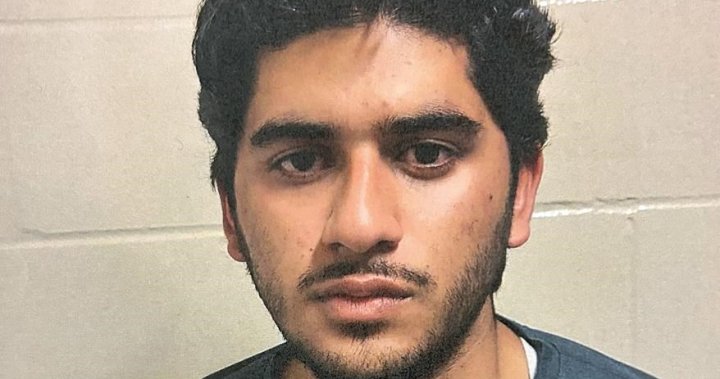Muhammad Shahzeb Khan, a 20-year-old Pakistani national residing in Canada on a student visa, finds himself at the center of an international terrorism investigation, facing extradition to the United States on charges of attempting to provide material support to a terrorist organization. Khan’s alleged plan, as detailed by US authorities, involved a mass shooting targeting a Jewish center in Brooklyn, New York, timed to coincide with the anniversary of the Hamas attack on Israel. His arrest on September 4, 2024, in Ormstown, Quebec, while en route to the United States, brought a swift halt to the alleged plot and initiated a complex legal process that continues to unfold. Khan’s Canadian lawyer argues that the case against his client constitutes entrapment, a claim that will likely be a central point of contention in the upcoming extradition proceedings.
The investigation into Khan’s activities began in October 2023 when a paid FBI informant observed his pro-Islamic State posts on Facebook. These online musings, including a quote from a Saudi jihad proponent and a photo of a disassembled weapon, raised red flags for authorities. The informant initiated contact with Khan, who initially identified himself online as “Shahzeb Jadoon.” Their conversations subsequently moved to an encrypted platform, where Khan reportedly shared Islamic State propaganda, including videos and an ebook detailing the terror group’s history. Unbeknownst to Khan, these interactions were being monitored and documented by the FBI, providing a growing body of evidence against him.
As the investigation progressed, the FBI successfully identified Khan and relayed crucial information to the RCMP, including IP addresses, social media accounts, and a Pakistani phone number. The RCMP confirmed Khan’s identity and initiated their own criminal investigation. Simultaneously, US authorities discovered Khan’s participation in a pro-Islamic State group chat, which included discussions of coordinated attacks in various countries, including the United States, Pakistan, and India. Two undercover officers infiltrated this chat group, posing as sympathizers, further solidifying the evidence against Khan and providing real-time insights into his evolving plans.
Khan’s alleged plot gained momentum in July 2024 when he proposed the formation of an “offline cell” of Islamic State supporters. He confided in an undercover agent about his intentions to carry out an attack against “Zionist Jews” and detailed his plan for a mass shooting using AR-style rifles. The arrest of a father and son in Toronto on terrorism charges, linked to an alleged Islamic State-inspired murder plot, prompted Khan to urge caution within the chat group, advising members to avoid social media and maintain a small, well-armed cell. Despite this setback, Khan remained undeterred, continuing to encourage members to acquire weapons and equipment, demonstrating his unwavering commitment to his violent plan.
By mid-August, Khan finalized his plans, choosing New York City as his target due to its significant Jewish population. He informed the undercover agent of his impending departure from Canada, having arranged travel with a human smuggler. His chilling message to the chat group, “Brothers … we are going to NYC to slaughter them,” left little doubt about his intentions. Khan’s journey, which began in Toronto on September 4, 2024, involved multiple vehicle changes in an attempt to evade detection. However, his efforts proved futile as authorities apprehended him in Ormstown, Quebec, effectively thwarting the alleged attack.
The case against Khan highlights the increasing use of online platforms by extremist groups for recruitment and radicalization. It also underscores the crucial role of international cooperation in combating terrorism. The collaboration between US and Canadian authorities, including the sharing of intelligence and coordinated investigative efforts, proved instrumental in preventing a potential tragedy. While Khan awaits his extradition hearing, the legal battle ahead will likely delve into the complexities of entrapment, freedom of speech, and the delicate balance between national security and individual rights. The outcome of this case will undoubtedly have significant implications for future counterterrorism efforts and the legal frameworks governing online extremism.

